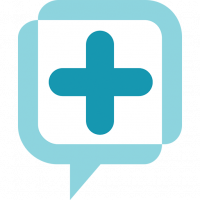April is Alcohol Awareness Month. Since April 1987, the National Council on Alcoholism and Drug Dependence has worked to draw attention to the effects of alcoholism as well as to help communities deal with alcohol dependency. This year, alcohol awareness takes on greater importance, with many people turning to alcohol to deal with the stress and anxiety of the COVID-19 pandemic.
Alcohol Awareness Month is a good time for hospital marketers to promote the idea of being mindful about one’s alcohol use and provide steps to determine whether or not alcohol use is an issue. If someone does have an alcohol issue, what should they do next? What tools do you, as a hospital system, have to offer? Is there someone they can talk to?
According to a survey from the American Addiction Centers of 3,000 Americans working from home, roughly 32% of respondents claim to be drinking during work hours. This isn’t entirely surprising. Working from home has never been a vacation. Now add the stressors of children at home from shuttered daycare and schools, financial concerns surrounding the loss of a job or reduced hours, or loneliness from a lack of contact from friends and family, and the anxiety of the whole situation is understandable.
Alcohol May Be Used To Self-Medicate
Alcohol may be used to reduce feelings of loneliness, depression and anxiety. During this uncertain time, it’s important to acknowledge these challenges and emphasize why it is best to avoid using alcohol to self-medicate, because it can make feelings of depression and anxiety even worse.
How Depression and Alcohol Are Linked
Some people drink alcohol in an attempt to cope with their depression. People can be drawn to the sedative effects of alcohol as a kind of medication, helping to distract from persistent feelings of sadness. Once a person regularly abuses alcohol, physical dependence and addiction can quickly follow. According to WebMD, about a third of those who suffer from major depression have a co-occurring alcohol use disorder. It’s understandable that those who suffer from depression may seek out the temporary relief that alcohol can provide; however, again, alcohol abuse simply compounds the depression.
How Anxiety and Alcohol Are Linked
Some people resort to the consumption of alcohol in an effort to deal with their anxiety issues. Because alcohol is a depressant and has a sedative effect, people often use the substance to unwind. As a person’s blood alcohol concentration rises, they often experience increased levels of relaxation. Some individuals use this tactic in order to mitigate stress in their lives.
The Anxiety and Depression Association of America (ADAA) notes that 20 percent of people dealing with social anxiety disorder suffer from some form of alcohol abuse or dependence. While alcohol can reduce anxiety temporarily, it can also increase anxiety within just a few hours of consumption. This includes even moderate amounts of alcohol, and the effects on anxiety can last into the following day.
What Can A Hospital Marketer Do?
- Start the conversation
Talking about alcohol may not seem like a priority right now, but for many people alcohol has become their coping mechanism. People drink alone, together, when celebrating and commiserating. Some drink a lot, some a little, and others don’t know when or how to quit. The best thing to do right now is start the conversation and raise awareness of how even casual drinking can become a problem, in certain situations. - Raise awareness in your community of the signs of an alcohol problem:
- It’s escalating – you are drinking more every week
- It’s becoming a preoccupation
- It’s crowding out other activities
- It’s interfering with work and relationships
- Others are concerned
- You feel defensive
- You’re being secretive
- Connect to your audience with digital tools
To help with fallout from COVID-19, Medicom Health is offering complimentary Anxiety and Depression symptoms assessments to health systems. For some who have never sought care for behavioral health conditions, this may be the time they discover treatment is necessary. Both assessments identify those who should undergo additional screening via telehealth or primary care.
Currently Medicom Health does not offer a substance use assessment. However, the majority of our assessments were initiated from client requests. If Medicom Health offered a substance use assessment allowing community members to answer from the privacy of their home, would your system be interested in the offering? Please let us know.















 Thank you for your interest.
Thank you for your interest.